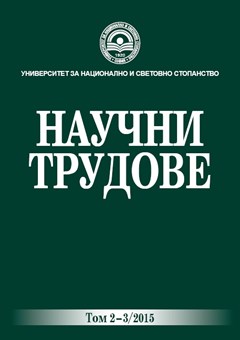Политико-икономическите симбиози – за една политикономия на българския преход
Political-Economic Symbioses: Towards a Political Economy of Bulgarian Transition
Author(s): Andrey BundzhulovSubject(s): Politics / Political Sciences, Social Sciences, Economy, National Economy, Sociology, Methodology and research technology, Socio-Economic Research
Published by: Университет за национално и световно стопанство (УНСС)
Keywords: political-economic symbioses; conversion; network resources; delegation.
Summary/Abstract: Transition is usually referred to as „the Transition“, with a capital letter and in singular, and as „from – to“ („from totalitarianism and state economy to democracy and market“). This study speaks not of a single, transparent, manageable „Transition“ but of many transitions as spontaneously occurring transformations and as legitimating strategies of the actors taking part in them. The key concept to describe these processes is „political-economic symbioses – a concretion of political and economic networks whose immediate origin can be found in the last period of the „former regime“. They take place at diverse levels and in diverse fields as transformations and restructuring of diverse types of capital (political, economic and social). The network analysis to which I adhere here is close to the sociology of Michel Callon, Bruno Latour, John Law etc., known as „actor-network sociology“, combined with that of Pierre Bourdieu, used by Laszlo Bruszt and David Stark in the analysis of the economic transformation in Hungary in the early 1990s. Combining these approaches provides the key to understanding that critical weakening of the state and institutions that is observed in the transition years.
Journal: Научни трудове на УНСС
- Issue Year: 2/2015
- Issue No: 2
- Page Range: 57-83
- Page Count: 27
- Language: Bulgarian

